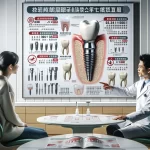Are you passionate about healthcare and eager to make a difference in people’s lives? A career as a dental hygienist could be the perfect fit for you! Dental hygienists play a vital role in the dental care team, focusing on preventive oral care, educating patients, and collaborating with dentists to promote excellent oral health.
This comprehensive guide will walk you through the essential steps to become a dental hygienist, covering everything from education and licensing to skills and job outlook. Let’s dive in!
What Does a Dental Hygienist Do?
Before embarking on your journey to becoming a dental hygienist, it’s crucial to understand the responsibilities associated with this rewarding role. Typical duties include:
- Performing Dental Cleanings: Removing plaque and tartar to maintain oral hygiene.
- Taking X-Rays: Conducting and developing dental radiographs for diagnostic purposes.
- Assessing Oral Health: Evaluating patients’ oral conditions and documenting findings.
- Applying Preventive Treatments: Administering fluoride treatments and sealants to protect against cavities.
- Educating Patients: Providing guidance on proper oral hygiene techniques and practices.
- Assisting Dentists: Supporting dentists during various procedures.
- Managing Records: Keeping accurate patient records and treatment plans.
Dental hygienists work in diverse settings, including private dental practices, community health clinics, schools, and hospitals. Many enjoy flexible schedules, allowing for both full-time and part-time opportunities.
Educational Requirements for Dental Hygienists
To become a licensed dental hygienist, you must complete an accredited dental hygiene program. Here’s a step-by-step overview of the process:
- Earn Your High School Diploma: Focus on subjects like biology, chemistry, and math to prepare for college-level coursework.
- Complete Prerequisites: Many programs require foundational courses in anatomy, physiology, and microbiology—often available at community colleges.
- Enroll in an Accredited Program: Most dental hygienists pursue an associate degree, typically taking about two years to complete. Some opt for bachelor’s or master’s degrees for advanced roles. Ensure your program is accredited by the Commission on Dental Accreditation (CODA).
During your studies, you’ll cover subjects such as:
- Anatomy and Physiology
- Pharmacology
- Dental Materials
- Radiography
- Periodontology
- Clinical Dental Hygiene
Hands-on clinical experience is also integral to your training, allowing you to develop essential patient care skills.
Licensure and Certification
After completing your educational program, obtaining licensure is crucial to practice as a dental hygienist. While requirements vary by state, they generally include:
- Passing the National Board of Dental Hygiene Examination (NBDHE): This comprehensive written exam assesses your mastery of essential knowledge in dental hygiene.
- Passing a Clinical Board Exam: Successfully complete a regional or state clinical exam that demonstrates your clinical skills. Common regional exams include CRDTS, WREB, and CDCA.
- Applying for State Licensure: Submit your NBDHE and clinical exam scores along with proof of education to your state dental board. Some states may also require background checks or CPR certification.
Maintaining your license requires ongoing education; be prepared to renew it every 1-3 years based on state regulations.
Essential Skills for Success
In addition to technical knowledge, successful dental hygienists possess key skills such as:
- Effective Communication: Clearly explain procedures and oral hygiene instructions to patients while collaborating with dentists and team members.
- Interpersonal Skills: Build rapport with patients, listen actively to their concerns, and create a comfortable environment.
- Attention to Detail: Follow precise clinical protocols while accurately documenting findings.
- Problem-Solving Abilities: Adapt to patient needs and troubleshoot equipment issues as they arise.
- Manual Dexterity: Skillfully manipulate small instruments with precision.
- Time Management: Efficiently manage schedules while providing thorough patient care.
Enhancing these skills during your education and throughout your career will contribute significantly to your success as a dental hygienist.
Career Outlook and Salary
The demand for dental hygienists is on the rise due to increasing awareness of oral health importance and an aging population. According to the U.S. Bureau of Labor Statistics (BLS), employment of dental hygienists is projected to grow by 11% from 2020 to 2030—faster than the average for all occupations.
In terms of compensation, dental hygienists enjoy competitive salaries. As of May 2021, the median annual pay was $77,810. Factors influencing earnings include location, experience level, type of employer, and specialty certifications.
Advancing Your Dental Hygiene Career
As you gain experience in the field, consider exploring various avenues for career advancement:
- Specialization: Focus on areas such as pediatric dentistry or periodontal therapy.
- Higher Education: Pursue a bachelor’s or master’s degree for opportunities in education or research.
- Leadership Roles: Take on positions like lead hygienist or clinic manager.
- Alternative Settings: Explore roles within corporate dental companies or insurance firms.
Continuous education and staying abreast of industry trends will enhance your career trajectory in dental hygiene.
Conclusion
Becoming a dental hygienist offers a fulfilling career path that merges healthcare with patient interaction and flexibility. By completing an accredited program, passing licensure exams, and honing essential skills, you can enter this growing field dedicated to improving patients’ oral health.
Ready to take the first step toward becoming a dental hygienist? Research accredited programs near you today and embark on this exciting journey!
Can I become a dental hygienist with a bachelor’s degree?
While most dental hygienists earn an associate’s degree, some programs offer a bachelor’s degree in dental hygiene. This can provide a more comprehensive education and potentially better job prospects or opportunities for advancement.
How long does it take to become a dental hygienist?
The typical path takes two to three years to complete an associate’s degree program, followed by obtaining a license. Bachelor’s degree programs take four years, while master’s degrees can add an additional two years.
Is dental hygiene a good career?
Yes, dental hygiene is an excellent career choice for those interested in healthcare and working with people. It offers job security, competitive salaries, flexible schedules, and the opportunity to make a positive impact on patients’ oral health.
What’s the difference between a dental hygienist and assistant?
Dental hygienists are licensed professionals who perform cleanings, take X-rays, and provide preventive care. Dental assistants perform supportive duties like sterilizing instruments and handling administrative tasks.







